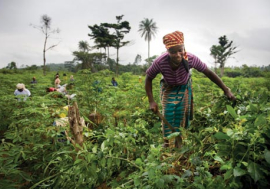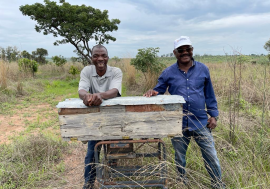To achieve the inclusion and developmental impacts in rural Africa, as well as for the sustainability of their environment, land tenure security is important.
While it is clear that there is a direct link between productivity, trade and economic growth – a recurring question at the recent Conference on Land Policy in Africa is, what does it mean in terms of tradeoffs and transitions - especially for women.
Land is an important asset, without which, no potential economic, environmental or social stability can take place. [Land tenure security is the right of individuals and groups to protection from forced evictions from their land by government. Tenure can be either Freehold, Leasehold, Conditional, Collective, or Communal].
Alongside land comes tenure - in whichever form it takes place (formal or customary), whether in terms of recognition of access or ownership - clarity of tenure is important in spurring investments and allowing women and the vulnerable to accrue the benefits.
Much of the land in Africa is still under customary tenure agreements, of which men are considered the owners and custodians of land.
Yet much of the contributions made in terms of labour, and knowledge come from women. The question therefore is how to ensure that land tenure benefits women.
Some examples during the conference have demonstrated the potential benefits of collective action in facilitative access and security of tenure for women.
In Uganda and Zambia for example, joint land titling between husbands, wives and their children ensures that land remains within the family particularly in the incidences of death, thus streamlining inheritance laws.
Further, in other examples, land leasing by individuals or groups of women have benefited women and demonstrated potential, particularly in conservation agriculture.
Land leasing has been supported by guidelines that ensure that key issues are addressed at the onset and which then in turn, stabilize the long-term access to land by women.
In Madagascar, the conference heard that women have been part of mapping land, including community land to know what is available.
Collective action in the form of women’s groups has greatly influenced and benefited women in negotiating access to land and ensuring long term tenurial security, thus increasing the income and food security for women.
While most of the examples are context specific, they demonstrate the potential for grass root level solutions that can bring long-term benefits for women and which in turn can help increase agricultural productivity, access to finance and markets.
Annita Tipilda is a PhD student exploring circular economy, sustainability and the opportunities to model new ways of economic growth in Africa at the Department of Food and Resource Economics, University of Copenhagen, Denmark.


































